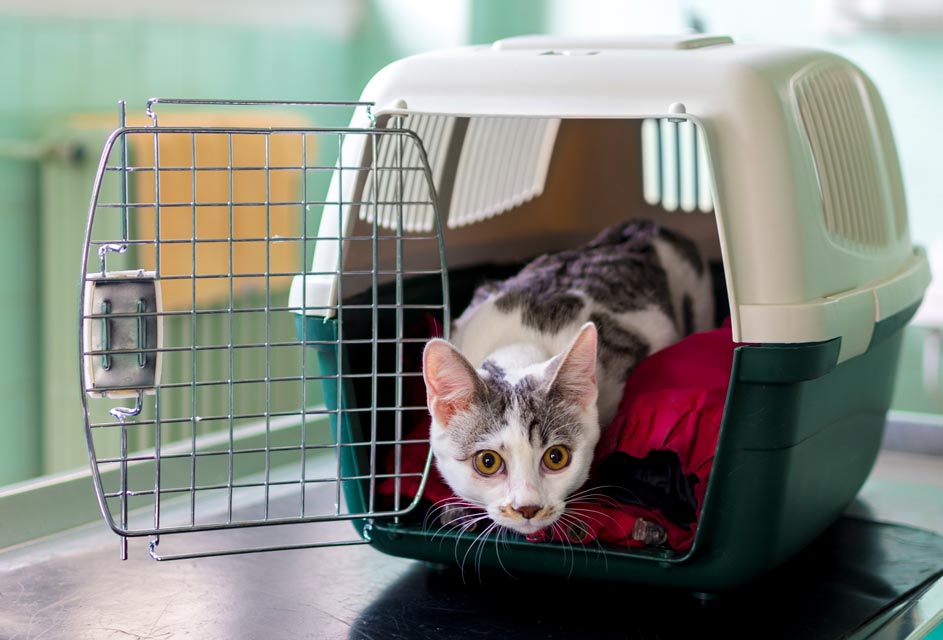- Home
- Destressing Vet Visits for Your Cat

Destressing Vet Visits for Your Cat

Cats are well-known for their reluctance to visit the vet. Of course, you might find an occasional social kitty that loves going, but many cats would greatly prefer to stay home.
Still, cats need to visit vets routinely to maintain the best possible health and certainly when they are sick or injured.
Here are some things you can try that might make a vet visit easier for your cat.
Make Going in the Carrier Fun
Between vet visits, make the cat carrier a nice place for your cat. You can do that by leaving it out with a nice bed in it for your cat to go in and relax whenever she likes.
Make Car Rides Less Scary
Likewise, you can give your cat practice with car rides between vet visits. Once your cat likes the carrier, occasionally close it and take her for a short ride. Give her a treat. If your cat really dislikes car rides and cries a lot or vomits, defecates, or urinates, slow down and take it easy. Start by simply putting your crated cat in the car for a couple minutes, then taking her out, giving her a treat, and going back inside (always stay with her while she's in the car). Once she can handle that calmly, start closing the car door. Then, start turning the car on, etc., until you're going for short rides without her freaking out.
Feliway Spray Can Help Tremendously
Feliway is a compound that mimics the calming pheromones cats produce in their cheek glands. You can spray it on the inside of your cat's crate before putting her in or spray a thin towel and put it over the top.
Try to keep your cat out of the vet's waiting room if possible. There's just too much noise and action going on there for most cats. Ask your vet if it's okay to stay in the car with your kitty until a room is ready for you, so you can take her straight in and bypass the waiting room. You can also ask for appointment times that are at slower times of the day to shoot for a shorter wait time.
Don't Punish Your Cat If She Acts Scared or Upset
Always use positive reinforcement. Wait for your kitty to be calm and then give her praise or a treat. As much as possible, ignore unwanted behavior like yowling and hissing.
Sedation
Some cats benefit from taking a mild sedative prior to a vet visit. However, that should never be done without your vet's input and a prescription specific for your cat.
Remember, your cat needs to go to the vet to have the longest, healthiest life possible. Use these tips to make it easier and never be afraid to talk to your vet and ask for further recommendations or help.

 Loading... Please wait...
Loading... Please wait...






